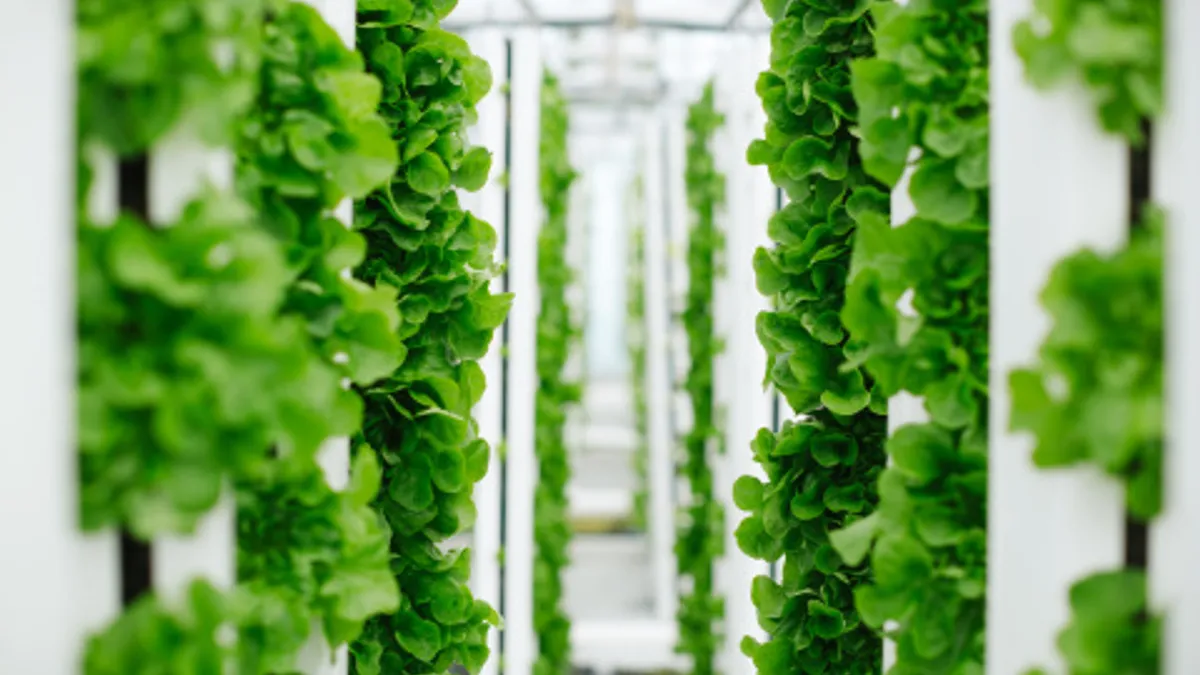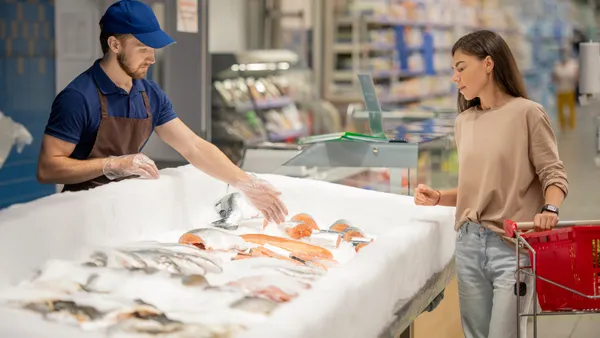Dive Brief:
- AeroFarms, a vertical farming operator, is merging with Spring Valley Acquisition, a publicly traded special purpose acquisition company (SPAC), the companies said in a statement. The transaction will provide $357 million in gross proceeds to AeroFarms and value the new company at $1.2 billion.
- AeroFarms, which was founded in 2004, said the merger will provide equity to help it expand its retail distribution and market penetration, construct additional farms, develop new farming technology and enter new product categories. The new company will be led by David Rosenberg, co-founder and CEO of AeroFarms.
- The agricultural producer is the latest food manufacturer to turn to a SPAC. Hostess Brands, Utz Brands and AppHavest have all gone public this way, and biltong maker Stryve Foods is expected to hit the public markets following its own SPAC deal.
Dive Insight:
As the SPAC frenzy continues to infiltrate Wall Street and consumers clamor for more fresh, sustainably grown produce, AeroFarms is picking the right time to go public. The nearly 20-year-old company has built its business on producing leafy greens, and so far has grown more than 550 varieties. AeroFarms’ Dream Greens is currently available throughout the Northeastern U.S. at retailers, including Whole Foods, ShopRite, Amazon Fresh and FreshDirect.
Indoor farming has been inundated with cash from investors seeking to capitalize on what many expect will be a lucrative sector going forward. In the last year, several indoor farming operations have raised significant amounts of money, including AppHarvest, Revol Greens and BrightFarms. AppHarvest, the only one of the bunch to go pubic, has seen its value rise from about $1 billion at the time of its SPAC deal to more than $1.7 billion today.
In each case, the money is being used by the companies to ramp up their businesses and expand their reach in retailers across the U.S. eager to meet consumer demand for locally grown and better-for-you offerings — trends that all have gained momentum during the pandemic. Indoor farms, whether they operate vertically or as large spread out greenhouses like AppHarvest, routinely tout their minimal environmental footprint. AeroFarms is no exception.
AeroFarms achieves up to 390 times greater productivity per square foot annually versus traditional field farming while using up to 95% less water and zero pesticides, the company said. It also has operated as a certified B Corporation and public benefit corporation since 2017. With shoppers placing greater importance in how and where their food is produced, these attributes collectively could be lucrative marketing tools for AeroFarms.
With demand for produce and the way in which it is grown on the rise, indoor farms are in a race to obtain a first-mover relationship with many retailers and consumers. Striking first could pay dividends down the road as stores decide to display their produce in more locations or carry more varieties of their vegetables and fruits.
"Our business is at an inflection point where we will scale up our proven operational framework and begin our expansion plans in earnest," Rosenberg said in a statement.
To do that, indoor farms need to spend big money now to grow their geographical reach across the U.S., invest in research and harvest more kinds of produce to increase their value to grocers while boosting their own revenue stream at the same time. With most, if not all of these companies still unprofitable and eager for cash to quickly scale their business, a deal with SPAC is an enticing option.
It's also likely these companies will need to take on more debt, or undertake a stock offering, to build their coffers and fund their expansion plans once cash from the SPAC deal dries up. For now, investors are buying into the promise of what the future holds — which for now is promising, but far from certain.














